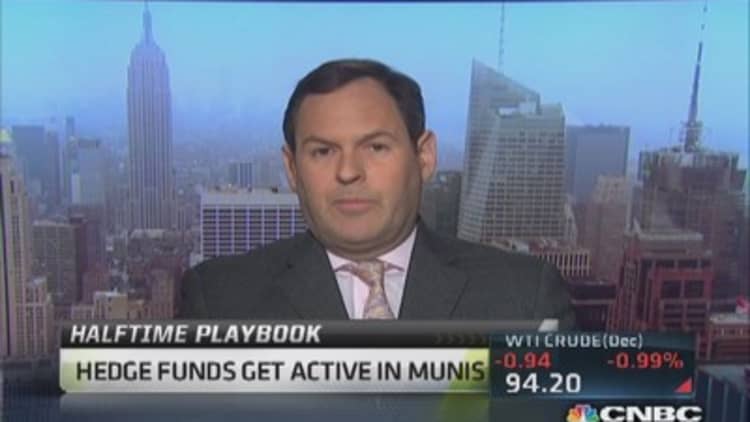Attorneys for the city of Detroit say they tried to negotiate with unions to head off a Chapter 9 bankruptcy filing earlier this year, but "it is not possible to negotiate with a stone wall."
The city's largest employee union, meanwhile, says the city merely engaged in "surface bargaining," presenting the unions with a take-it-or-leave it offer in June, then filing the largest municipal bankruptcy in U.S. history a month later.
The question of whether the city bargained in good faith with the unions is central to a federal judge's decision on whether Detroit is eligible to restructure its finances under the bankruptcy law. U.S. Bankruptcy Judge Steven Rhodes is weighing written arguments following a three-week trial.

The unions oppose the bankruptcy in part because it would mean massive cuts to their pensions and retiree health benefits. The city, led by state-appointed emergency manager Kevyn Orr, says bankruptcy is the only viable option for Detroit, which he says has $18.5 billion in liabilities—roughly $8 billion of that owed to the city's pension and health benefit plans.
(Read more: Detroit's finances 'shocking,' city manager testifies)
The unions contest the numbers and say the July bankruptcy filing was an illegal attempt by the city to shirk its obligations.
Both sides acknowledge that Orr and his team presented the unions with a restructuring proposal at a meeting on June 14, which the city says was enough to meet the standard for good faith bargaining. But attorneys for the American Federation of State, County and Municipal Employees argue the city had already resolved to file for bankruptcy by then.
(Read more: Bond market under fire, but pros keep their cool)
The city filed for bankruptcy protection on July 18, after learning the unions were preparing to move in state court to block the filing. In its written arguments Wednesday, the city said the failure to reach an agreement to avert the bankruptcy "resulted largely from the objectors' intransigence."
The judge could rule on the city's eligibility at any time. The losing side is almost certain to appeal.
Correction: This version corrected that the deadline was for written arguments was Wednesday.
—By Scott Cohn, CNBC Senior Correspondent. Follow him on Twitter @ScottCohnCNBC.


